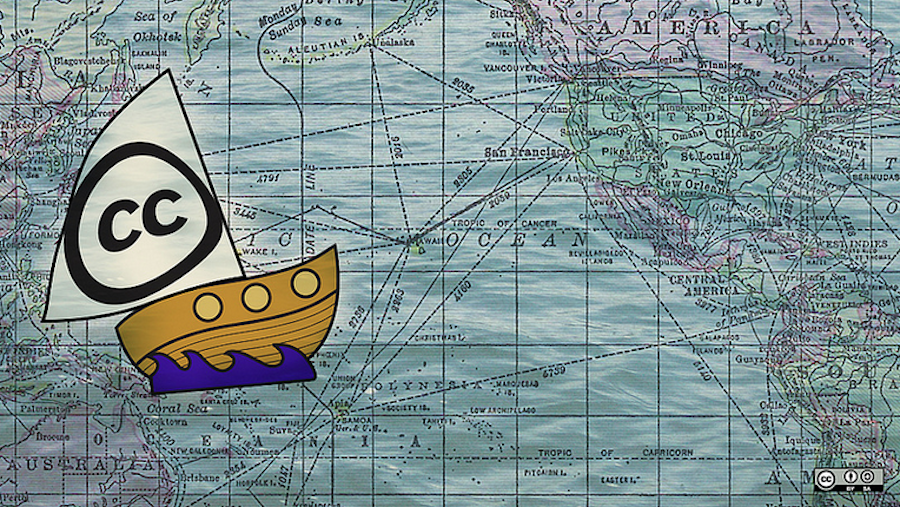by Paul Stacey, Associate Director of Global Learning, Creative Commons
Business has always benefited from the Commons. Air, water, forests, pastures, fish and other Commons-based natural resources have long been freely accessed and used. In the age of the Internet we've seen natural resource-based Commons augmented with a rapidly growing digital Commons.
Creative Commons, with its globally standardized licenses, has been a key enabler of the digital Commons. By 2014 creators, governments, foundations, and academics had used Creative Commons licenses to contribute over 882 million works into the digital Commons providing greater access to knowledge and culture for everyone, everywhere.
This year, we’ve seen Mutual Aid in Motion.
From scaling sharing hubs to Mutual Aid 101 trainings, we’re helping communities build the tools they need.
Every dollar fuels lasting resilience – proving that when we move together, we all move forward.
But how exactly do Creative Commons based business models work? How can you give away work for free, openly allowing it to be changed, and still make money to sustain what you do? How can you use the digital Commons to offset costs, generate innovation, and build relationships? How can you not just use the digital Commons, but contribute to it and balance profit with social good?
My Creative Commons colleague Sarah Pearson and I are planning to write a book that will help answer these questions. We’re funding the project through Kickstarter. The book will be freely available to everyone. We think it’s central to the themes and issues Shareable readers value and hope you'll all participate in and contribute to our campaign.
The cost of sharing and distributing open digital content with everyone in the world is close to $0. Rather than trying to create artificial scarcity and control availability of content some businesses are using models that rely on sharing and reuse through Creative Commons. Our plan is to document 24 successful Creative Commons-based open business models around the world and write a book about how they work.
We will describe each business model in a way that makes clear how it works for everything from customers, to partners, value propositions, and revenue streams. The whole idea is to express the model in a way that allows it to be adopted, reused, and remixed by others. We plan to to dig deep into how the models work to show how using Creative Commons can produce economic and social value.
The process for creating the book will be a year-long experiment in working open. As we research for the book, we’ll publish regularly in our Medium publication, which we consider our digital whiteboard. There, we’ll share insights as we go, try out new ideas, and we’ll openly discuss obstacles we face, questions we have, and issues we are mulling. Our hope is that the process of researching, analyzing, and writing the book will be truly collaborative and open.
At the end of the process, we will put our findings together in an ebook, and we will publish an interactive tool that people can use to develop and evaluate their own open business models. In its simplest form, we think of this project as an exploration into the ways creators can make a living in the digital age.
As creators wanting to write a book we will give away for free under a Creative Commons license, we decided to walk the talk. We chose crowdfunding to generate support for this initiative launching Creative Commons' first-ever Kickstarter campaign. We’ve garnered support from all around the world, not just in the form of pledges, but telling us about related work, identifying businesses people think we should profile, and even offering to collaborate.
We hope you'll join us in writing a book that shows the world how sharing can be good for business.
##
Photo: Creative Commons a vessel idea by opensource.com (CC BY-SA)

